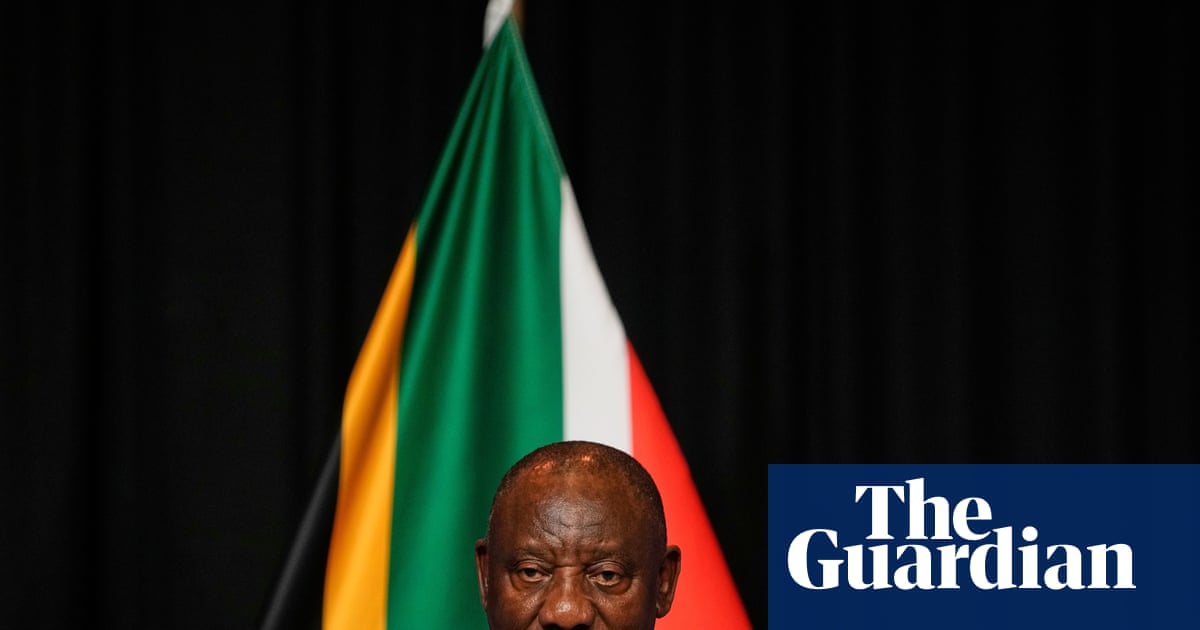Diplomatic Rift Widens: South Africa Challenges US Over G20 Handover Ceremony
Tensions between South Africa and the United States have escalated following a diplomatic spat concerning the G20 summit in Johannesburg. South African President Cyril Ramaphosa voiced strong objections to a US proposal for a junior embassy official to receive the G20 presidency at the closing ceremony, an event intended to mark the handover to the next host, Florida. This contention arises amidst the Trump administration's decision to boycott the current summit.
The contentious relationship saw a sharp exchange of words. White House press secretary Karoline Leavitt publicly criticized President Ramaphosa, accusing him of “running his mouth” after he asserted that nations should not be bullied and their sovereignty must be respected. Leavitt clarified that the US was not participating in official G20 talks, and their representative—acting ambassador Marc Dillard—was solely present to acknowledge the US's upcoming role as G20 host in 2026, which will be held at the Trump National Doral Miami golf resort. Ramaphosa had previously indicated he would hand over the G20 presidency to an “empty chair” if necessary, preferring to address Donald Trump directly.
This incident compounds months of accusations from Washington alleging racial discrimination against minority white Afrikaners in South Africa, a claim Pretoria has vehemently denied. Many South Africans view the US's approach as a deliberate snub.
South Africa's G20 Leadership: Championing Global Issues
Despite the diplomatic friction, South Africa is hosting the G20 summit with pride, being the first African nation to do so. The country is leveraging its presidency to champion critical issues affecting the continent and the wider developing world. Key priorities include tackling high public debt, maximizing benefits from the increasing demand for “critical minerals” essential for green technologies, and advancing a “just energy transition” away from fossil fuels while safeguarding livelihoods. Enhancing disaster resilience and response mechanisms also features prominently on their agenda.
As part of its leadership, Ramaphosa commissioned significant reports on Africa’s debt and global inequality. A panel of independent experts, led by Nobel laureate Joseph Stiglitz, produced a report revealing that the wealthiest 1% globally amassed 41% of all wealth generated between 2000 and 2024, while the poorest 50% received only 1%. The panel advocates for an independent body, similar to the Intergovernmental Panel on Climate Change, to monitor global inequality and policy effectiveness. This proposal has garnered support from leaders like Brazil's President Luiz Inácio Lula da Silva and Spain's Prime Minister Pedro Sánchez.
Local Voices and International Scrutiny
Coinciding with the G20 summit, South Africa has also seen widespread protests against gender-based violence. In a poignant demonstration on Friday, thousands across the nation participated in a 15-minute silent lie-down to remember the approximately 15 women murdered daily in the country.
Internationally, political risk consultants like Marisa Lourenço suggest that the US boycott is likely to diminish, rather than enhance, its global standing. The perception is growing that the US is acting unreasonably, with its actions towards South Africa seen as misguided. The G20, founded in 1999 to address global economic and financial issues as a broader alternative to the G7, now faces internal strains as a major member withdraws from official dialogue.

